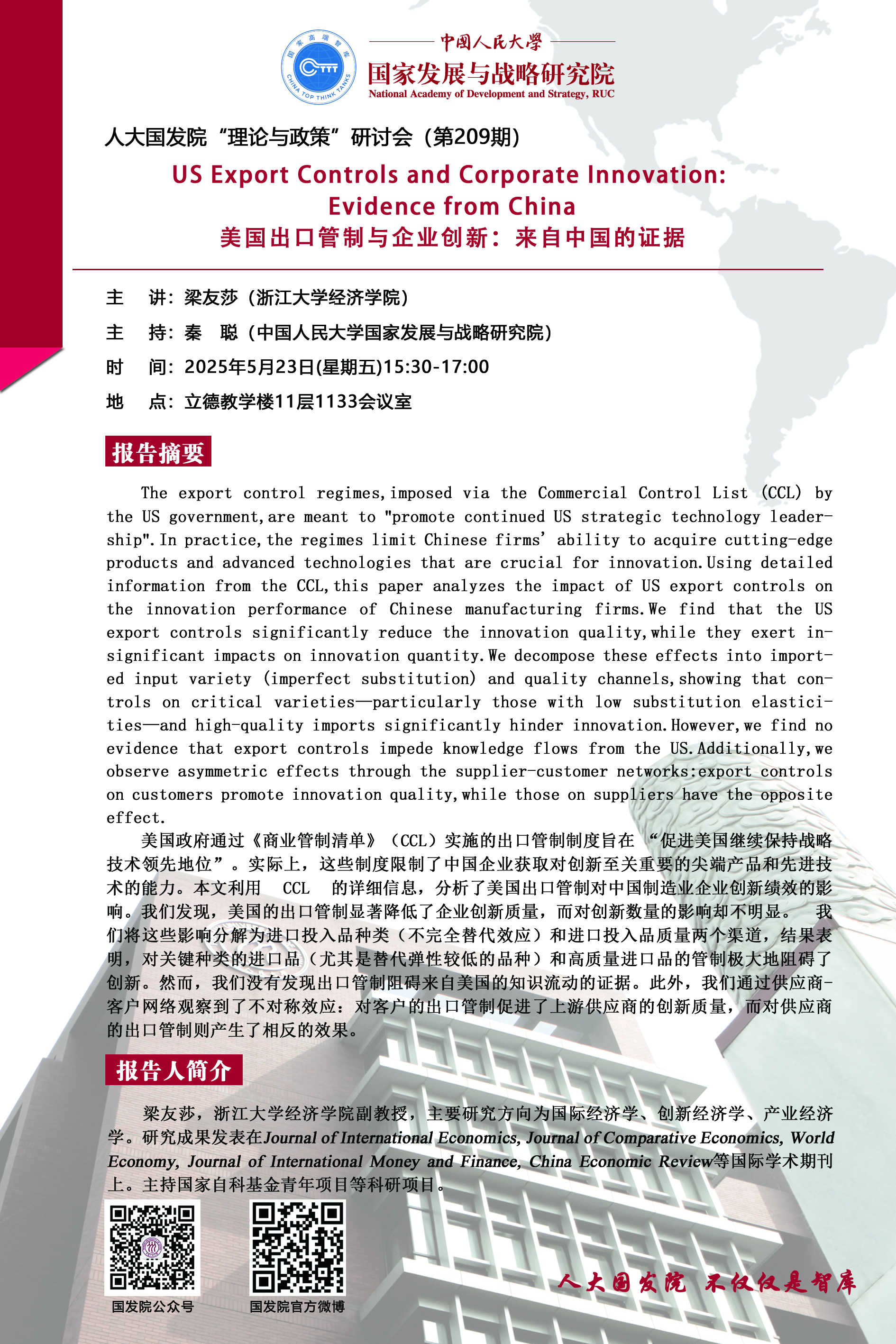 Notifications
Notifications
16
MayNational Academy of Development and Strategy (NADS), RUC
Theory and Policy Seminar, Series 209
US Export Controls and Corporate Innovation: Evidence from China
Reported by: LIANG Yousha (School of Economics, Zhejiang University)
Moderator: QIN Cong (National Academy of Development and Strategy, Renmin University of China)
Time: May 23, 2025 (Friday) 15:30-17:00
Venue: Room 1133, 11th Floor, Lide Building
Abstract:
The export control regimes, imposed via the Commercial Control List (CCL) by the US government, are meant to “promote continued US strategic technology leadership”. In practice, the regimes limit Chinese firms' ability to acquire cutting-edge products and advanced technologies that are crucial for innovation. Using detailed information from the CCL, this paper analyzes the impact of US export controls on the innovation performance of Chinese manufacturing firms. We find that the US export controls significantly reduce the innovation quality, while they exert insignificant impacts on innovation quantity. We decompose these effects into imported input variety (imperfect substitution) and quality channels, showing that controls on critical varieties—particularly those with low substitution elasticities—and high-quality imports significantly hinder innovation. However, we find no evidence that export controls impede knowledge flows from the US. Additionally, we observe asymmetric effects through the supplier-customer networks: export controls on customers promote innovation quality, while those on suppliers have the opposite effect.
